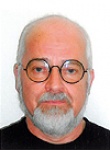Composers A-Z

Grete Zahn
* 05.04.1928 in Frankfurt am Main † 02.12.2018 in Frankfurt am Main
Grete Zahn was born on April 5, 1928 in Frankfurt am Main. She received her first piano lessons at the age of 8. A lot of house music was played at home. From 1940 she received lessons in recorder and organ playing.

José Antonio Zambrano Rivas
* 30.11.1965 in Cocorote (Yaracuy/Venezuela)
José Antonio Zambrano Rivas was born on November 30, 1965 in Cocorote (Yaracuy/Venezuela). In the age of 5 years he learned to play the violin by his father and the cuatro (a sort of guitar) with José Luis Oviedo.

Karl-Heinz Zarius
* 1941
In addition to school music, Karl-Heinz Zarius also studied composition and violin at the universities in Cologne and Düsseldorf.

Alfred Zastrau
* 28.06.1906 in Golzow † 28.07.1981 in Berlin
Die Reifeprüfung bestand Zastrau 1924 in Berlin. Ein Studium der evangelischen Theologie schloss sich an, 1925 brach er das Studium aus, wie er in einem Lebenslauf schrieb, »grundsätzlichen Erwägungen« ab.

Hans Zihlmann
* 12.08.1936
Hans Zihlmann’s life and activity so far have developed in three places: Marbach, Hitzkirch, Lucerne.

Wolfgang Zoubek
* 11.05.1945 in Klattau/Böhmen † 11.06.2007 in München
Wolfgang Zoubek, born in 1945 in Klattau / Bohemia, first appeared as an organist in 1958 and as a composer in 1966. From 1966 he studied school music and organ with Franz Lehndorfer at the Munich University of Music as well as composition with Günter Bialas and Wilhelm Killmayer.